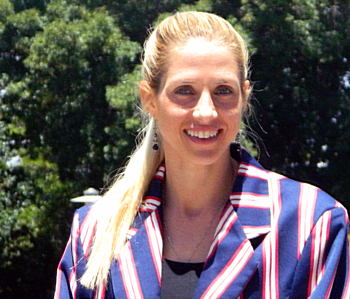
Cindy Hack
Photo: Stefan Lotter |
Cindy Hack is not only a prominent schools marketer for the University of the Free State (UFS) in Durban, she also captains the national Protea Women’s Indoor Hockey team.
After playing field hockey for the Proteas for five years, she ended her field hockey career in 2012, just before the London Olympics.
Married and with a child to take care of, Hack says the indoor version of the game allows for more flexibility. “When playing outdoor hockey for the Proteas, you’ll be away on training camps in cities like Amsterdam, away from home for six weeks at a time,” Hack says. “With indoor hockey, we are definitely more flexible and tournaments and training camps do not take up as much time.”
She also points out the pace of this version of the game. “It used to be six players a side, but that number has recently been reduced to five players a side, making the game even faster and more intense.”
On 1 December 2014 Hack and her team travelled to Canada for a preparation tournament for next year’s World Cup. The Indoor Hockey World Cup will be hosted in Germany in February 2015.